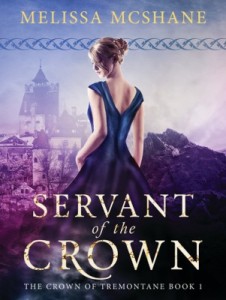25 Senessay (continued)
It was a very comfortable room. There were four well-padded chairs, and a low table just perfect for drinks, and while I settled myself into one of the chairs, Sai Aleynten disappeared and came back some minutes later with a tray holding a metal pitcher and two glasses. This time he poured the conventional way, and rather than water the pitcher held a pale yellow liquid that looked like lemonade, and it was. We talked for a few minutes about things that were the same in both our worlds, not that there are many of them, and then I read aloud for a while. I had to keep stopping because the book referred to places I didn’t know, and Sai Aleynten (big surprise) was familiar with all of them. It really was an interesting book, though we’d been right in thinking it had no bearing on our research. At some point we put the book aside and Sai Aleynten told me more about the government of Castavir—I don’t know how we came to that subject. It was clear there were things he was skirting around, primarily the God-Empress issue, but if the God-Empress is as dictatorial as I think she is, it would make sense that he wouldn’t want to criticize her out loud, even to an otherworlder who’s unlikely to repeat his words to anyone who might care. Anyway, I now feel I have a slightly better grasp of Castaviran politics, though my understanding of politics in general has never been strong; ground-level enforcement of the law has always had more of an effect on me.
And I told him—I still can’t believe I told him this—I told him about some of the things I’ve had to do to gain access to the books I needed, which led to me explaining I’d had to steal to survive for most of my life, though I didn’t talk about Bridie or Roda or Mam, and I didn’t try to explain about the politics that lost my family its social and economic standing when I was no more than a baby (not that I understand that myself), just that Dad died when I was nine and we became destitute. He just listened, though at the end he said, “No wonder we could never keep you locked up.”
“No, that was the mind-moving pouvra, though it’s true I need to understand locks to know how to move them correctly,” I said, and then we both realized that although I’d told him about it, he’d never seen me do it. So I showed him how I could raise the tray with its pitcher and glasses, though only an inch or so, and then I worked the lock on the door a few times, and he showed his astonishment in his usual ebullient way, which was to raise one eyebrow until it threatened to climb off his forehead.
“The fine control to work that lock is beyond me,” he said, “though I think my capacity for moving larger objects is greater than yours,” and he wiggled his fingers and made one of the chairs, thankfully not the one I was sitting in, lift into the air until its back struck the ceiling. This time, I was watching his hand more closely, and I swear I saw traces of amber light following the movement of his fingers.
“Definitely,” I agreed, “though it makes me wonder something.” I concentrated on my glass, which had about half an inch of lemonade still in it, and the liquid flowed up the sides of the glass and emerged to make a pale yellow sphere that I flew around the room.
“That is truly astonishing,” Sai Aleynten said. He traced a th’an on the side of his glass, which was a little fuller than mine, and the liquid quivered, but stayed in the glass. “It seems I have practicing to do.”
“So do I,” I said, laughing, and he smiled at that. I wonder if he ever laughs. I wonder why he never relaxes. Well, he was relaxed then, but his relaxation still looks like someone else’s rigidity.
Right then my stomach rumbled, and I laughed again. “I think I should have dinner,” I said, and then I didn’t know what else to say. It felt rude to just walk away, but I didn’t think it would make either of us comfortable for me to invite him to eat with me in the refectory. And, honestly, I can’t picture him eating in there. No one would dare to joke or laugh or even speak. Except me, possibly.
Sure enough, he just said, “Then I will speak with you in the morning. Or in the evening, if you prefer, when you may have something to report.”
I said, “Then, good evening, Sai Aleynten, and thank you for an enjoyable afternoon.”
He nodded, but when I had my hand on the knob and was realizing I’d left the door locked, he said, “You should not call me Sai.”
“But everyone calls you that—did I misunderstand?” I said. I felt embarrassed again. I hate looking like a fool, and if I’d been calling him Sai Aleynten when that was wrong—that’s as bad as calling him by his praenoma when I wasn’t invited—but that’s not what happened.
“‘Sai’ is not only a title,” he said. “It implies a relationship…not exactly of obedience, but of obligation. You are under no obligation to me.”
That made me feel a little better, though still embarrassed. “Do I call you just Aleynten, then?” I said.
He paused for a long time, then said, “My given name is Cederic. It would not be inappropriate for you to call me that.”
That still makes me feel horribly embarrassed. Like I’ve written before, in Balaen names are important. We used to have a surname before Dad was stripped of power and he lost that along with everything else. And Sai Aleynten sharing his given name with me, when we don’t really have a close relationship…that’s an intimacy I’m sure he didn’t mean, and I couldn’t tell him that without embarrassing him too. He said, later, that he was the only one who could invite me to use his given name, so I guess names do mean something to them, but nothing nearly so personal as they do to me. So I’ve resolved never to be in a position where I have to call him anything. I don’t know what I’ll call him in the pages of this book. I kept writing Sai Aleynten because that’s how I thought of him, right up until he gave me his name, but obviously I shouldn’t do that anymore. It’s stupid of me to be so sensitive, but I’ve already lost my whole world and almost all of my customs, and I feel as though I need to cling to something in order to stay myself. Also, how awkward will it be if I’m the only one calling him Cederic? That’s the sort of thing that gets noticed!
Which is more or less what I said next, though it came out as, “That’s not too informal, when everyone else calls you Sai?”
He smiled, and said, “You are not everyone else, and they know it. I think you will find they are happier when you, an outsider, do not presume upon the obligation all of them have earned.”
“You mean they’ve all been cringing every time I refer to you as Sai Aleynten?” I said. I’d noticed my talking about him made them a little uncomfortable, but I’d assumed it was because I was always so critical of him. I thought I’d been embarrassed before, but now I didn’t think I could face the refectory and all those people who thought I was…I don’t know. Presumptuous, maybe?
Sai Aleynten Cederic He shook his head. “I imagine none of them knew how to correct you without embarrassment. And none of them would feel comfortable giving you the freedom of my given name.”
“I understand,” I said, “though I’m surprised you didn’t correct me earlier.”
“It never occurred to me,” he said. “And you never address me directly.”
“I don’t know whether to apologize for that or not,” I said, “but I think most of our conversations haven’t been the kind where our names are important.”
“True,” he said. He’d been sitting this whole time, and now he stood and said, “I think you will discover that door is still locked.”
“I know,” I said, and quickly unlocked it. “Thank you…Cederic.”
He inclined his head to me. “Thank you for the reading, Thalessi.”
And I have no idea why I did what I did next, which was to say, “My given name is Sesskia.” It just came out. I suppose it was partly because I felt so awkward about him giving me his name like that that I wanted to restore the balance between us, and partly because something about him makes me tell him everything, even against my better judgment. But I did, and now I can’t take it back. I hope I don’t regret it later.
So he said, “Then thank you, Sesskia,” and we went our separate ways, him presumably to his room, me to the refectory. It was an uneventful dinner, probably because everyone had exhausted their stores of fun and was ready for an early bedtime and back to work in the morning. And now I’m finishing this record for the night. I’m looking forward to studying the book in the morning. I still don’t know if I can call him Cederic, particularly to his subordinates, but I suppose Sai Aleynten is out of the question now. At least I don’t hate him anymore, because there are serious taboos about using the personal name of one’s enemy. And he’s certainly not my enemy.


